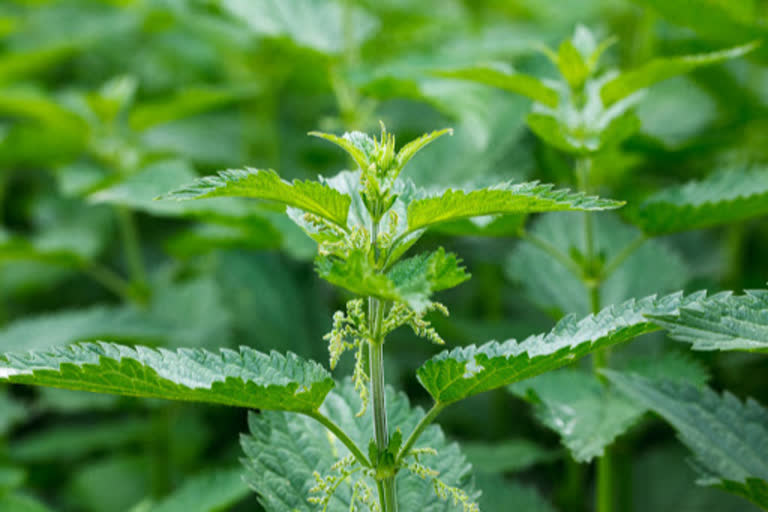Almora: A recent study conducted by the Zoology department of Soban Singh Jeena Government Institute of Medical Sciences and Research Almora suggests that stinging nettle can prove effective in curing the novel coronavirus disease. Stinging nettle, also known as common nettle, found in the Himalayan regions, is herbal medicine and its young leaves can be cooked and eaten as a nutritious potherb.
The findings of the research conducted by the University were published in the Molecular Diversity of Springer Nature, a scientific research journal that is published in Switzerland.
Dr Mukesh Samant, Assistant Professor and Head of Research, Department of Zoology said, "Out of 110 molecules found in the common nettle, at least 23 molecular particles were found which are associated with lungs and its receptors. These 23 molecular particles can help in fighting against the coronavirus disease. First, we will remove these smaller particles from the plant and then clinical trials will be conducted."
READ: With talks failing, farmers intensify protest
Samant said that he was assisted by Dr Avnish Kumar of the National Institute of Technology Raipur and Shobha Upreti, Satish Chandra Pandey and Jyoti Shankar of Soban Singh Jeena Campus Almora.
Stinging nettle is a weedy perennial plant of the nettle family Urticaceae, known for its stinging leaves. It is highly rich in nutrients and is also a source of bast fibres for textiles and is sometimes used in cosmetics.
Leather products such as jackets, bags, shawls are also made with the help of common nettle and is common in Europe, North America, North Africa and parts of Asia.



